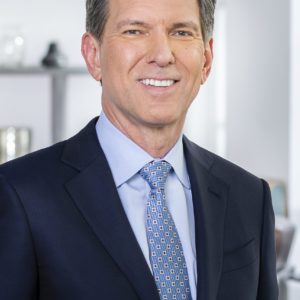Conversations among corporate executives are changing. When I talk to other CEOs, we still discuss the digital transformation of their businesses and how to meet the needs of their stakeholders amid economic uncertainty, but there is a new focus on environmental, social and governance (ESG) programs. Instead of discussing ideas for the future, C-suite executives around the country are hitting the accelerate button now, and there’s no sign of slowing down.
This trend was validated by data from the 2021 KPMG U.S. CEO Outlook, which gathers insights from CEOs of large companies. Over three-quarters of CEOs surveyed are prioritizing the social component of their ESG programs and 76% are looking to lock in the sustainability and climate change gains they have made over the past 18 months.
Considering the current environment—the ongoing Covid-19 pandemic, sustained calls for social justice, the visible impacts of climate change and the expectations of investors—it’s clear that ESG progress will be the measuring stick for CEOs. ESG is now a business imperative, and how CEOs respond can impact the loyalty and growth of their customer base, their ability to attract and retain top talent and their standing with investors and other core stakeholders.
There is no one-size-fits-all option to ESG, as each company’s ESG journey is specific to its industry, maturity and unique business and operating models. But by establishing ambitious ESG targets and successfully executing on these commitments, organizations have an opportunity to truly stand out. Leading CEOs understand this and are making meaningful investments in their ESG strategies. KPMG recently announced plans to dedicate more than $1.5 billion over the next three years specifically to focus on the ESG change agenda, as part of its ongoing multi-billion-dollar investment program.
CEOs are committed to the E in ESG. Over the past few months, we have seen firsthand the impact of climate change on our planet. Leaders want to do what they can to mitigate climate change and are committed to reducing emissions and promoting sustainability. They also understand that the regulatory environment is shifting, as the Biden administration, and governments across the world, prioritize addressing climate change through prospective new regulations and disclosure requirements.
When it comes to the S, many CEOs are taking a range of steps to ensure everyone is given fair and equitable access to opportunities and that the people in their organizations are fully supported, especially as the nation continues to navigate the evolving future of work. These efforts include increasing HR resources dedicated to employee well-being and mental health, introducing new benefits and programs for caregivers, and offering ongoing training and development.
Every CEO and board member I meet with specifically wants to discuss diversity, equity and inclusion. They recognize that they will be held personally accountable for achieving measurable progress. This meaningful change will come from transparency and an openness to constructive engagement, both within organizations and with external stakeholders. At KPMG, we launched our first Diversity, Equity and Inclusion transparency report this past spring and plan to release regular updates to keep ourselves accountable as we push toward our goals.
And, without question, the G is always front and center for CEOs. Organizations, especially in today’s environment, will not succeed without strong governance. Board diversity, appropriate risk management, and building the right approach to sustainable value creation are key strategic priorities for boards, CEOs and management teams.
The success of the application of ESG boils down to one core theme: authenticity. For an ESG plan to resonate, it needs to be specifically tailored to a company’s values and approach to business. CEOs must embed purpose in their efforts to meaningfully close the gap between aspirations and results. CEOs realize there are heightened expectations— 77% feel the public is looking to business to address societal challenges. The question facing leaders now is how they will meet the moment in a way that is true to them, and their business.
Robust engagement with diverse stakeholders, responsible investing practices, leveraging data to guide strategy and measure impact and progress without bias, and driving action through partnerships, alliances and advocacy will be hallmarks of businesses that rise to the occasion and successfully embed ESG into business strategy.
The moment has come for corporations to fully lean into ESG—its importance will only grow. My advice to CEOs: don’t wait. By investing in ESG today, CEOs will help ensure the future success of their businesses by creating long-term value for their stakeholders, positive social change, and sustainable growth for years to come.







